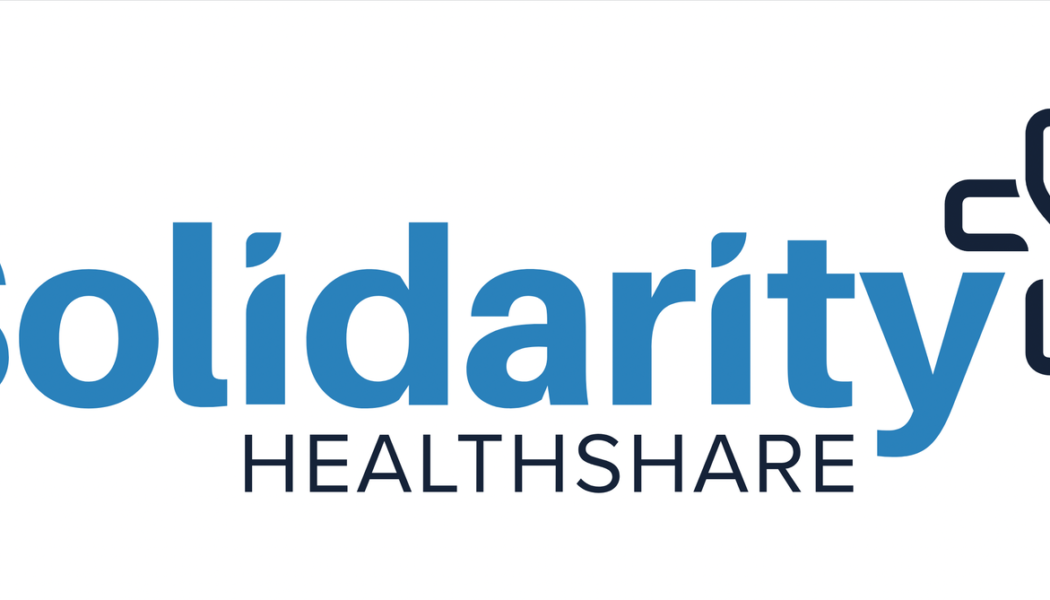Catholic health insurance alternative Solidarity HealthShare has left some members’ medical bills unpaid for months or even years at a time, leaving some families in financial crisis, and raising questions about the organization’s operations and transparency. Members also say the ministry has not complied with Arizona laws requiring the organization to distribute monthly financial accountability disclosures.
Several members and former members of the Catholic healthshare ministry told The Pillar that their unpaid medical bills have gone to collection agencies, and that in some cases, their credit scores have tanked because of medical bills Solidarity has failed to process.
Some members told The Pillar they have been unable to return to their health care providers because of large outstanding bills, and at least one member received a court summons over a balance Solidarity had not addressed.
Former Solidarity employees told The Pillar the organization was significantly understaffed, and that there have been widespread problems with paying members’ bills for several years.
Members have also raised questions about the organization’s compliance with state and federal regulations.
For its part, Solidarity told The Pillar that the organization “is confident that the steps it has implemented over the past few years are helping its members live out their values as they share their medical expenses with each other.”
Lengthy delays and mounting bills
Solidarity is a health sharing ministry, an alternative to traditional health insurance in which members help pay each other’s medical expenses through a centralized administration, and is governed by a list of sharing guidelines. Members make a monthly payment similar to a premium, and submit medical bills to the organization for payment through other members’ contributions.
There are some 1.5 million Americans enrolled in health sharing religious ministries, according to the Alliance of Health Care Sharing Ministries.
Solidarity is an explicitly Catholic healthshare. Members are not required to be Catholic, but they must be Christians who agree with Catholic moral teaching. Abortion, contraception, sterilization and other medical procedures that violate Catholic teaching are not covered by the program.
The Pillar spoke with eight current or former Solidarity members who said they have had significant difficulties getting their bills paid in recent years. Several requested anonymity because they are still trying to get Solidarity to reimburse their medical bills.
Most members and former members who spoke with The Pillar said they chose Solidarity specifically because it was Catholic. They wanted to make health care choices informed by Catholic teaching on sexual and medical morality, and the idea of a Catholic community helping to care for one another appealed to them.
But instead of a Catholic community, they said, they found lengthy delays, poor communication, and little help navigating a complicated bureaucratic system.
The stories told by Solidarity members shared some common themes: Frequent requests to resubmit information that had already been sent. No acknowledgement of bills or other documents that had been submitted. Delays blamed repeatedly on new computer systems, for months or years at a time.
And with those things, mounting bills. Crumbling credit ratings. Anxiety about seeing a doctor, and compounding financial crisis.
Members described feeling helpless as they tried to avoid catastrophe.
One couple asked their parish community to chip in, so they could pay a bill before it went to collections.
Another couple said it took two years to be reimbursed for the labor and delivery of one of their children. After the hospital bill went to collections, the couple said, they negotiated with the hospital – against the repeated advice of Solidarity – and ended up paying for the bill with their COVID stimulus checks.
Since then, the couple has had another baby. Now they have new outstanding medical expenses – about $15,000 total – and they are not confident that Solidarity will pay them.
‘I feel really powerless to do anything’
When Michael and Jacqueline first signed up for Solidarity HealthShare a few years ago, they were excited.
Jacqueline was working at a local Catholic parish and Michael worked for a Catholic school. They had both been on the diocesan insurance plan, but after the birth of their first child, the premiums were no longer affordable. Solidarity was much less expensive.
Both converts to Catholicism, they were also excited to know that their money would not be going to fund abortion, contraception, or other medical procedures that go against Catholic teaching.
“We love the Church, so we really wanted to support a Catholic organization,” Jacqueline told The Pillar. “We loved the idea of being able to support other Christians in their medical needs.”
For the first two years or so, things went great. The family had few health care expenses and the ones that arose were covered smoothly. They had a good experience with Solidarity, which they recommended enthusiastically to friends.
Then in early 2020, Jacqueline became pregnant with their second child. Around this time, she said, she began to hear friends complain about difficulties in getting expenses reimbursed through Solidarity, and she began to grow nervous, wondering if they would run into similar problems.
Their baby was born in November 2020. It was an uncomplicated labor and delivery.
Michael said he called Solidarity from the hospital the day after the baby was born, to add their newborn son to their account. When the couple began to receive bills, they submitted them to Solidarity for payment, just as they had been instructed to do.
Then they waited.
And waited.
But the bills didn’t get paid.
They sent emails. They resubmitted bills. They spent hours on the phone with Solidarity representatives.
But still the bills didn’t get paid.
Their son is now more than 18 months old. And Michael and Jacqueline still have close to $10,000 in unpaid bills from the pregnancy and his delivery.
In the meantime, they say their bills have gone to collections and Jacqueline’s near-perfect credit score has plummeted – by almost 150 points overnight.
“We’re kind of stuck,” Jacqueline told The Pillar.
“I feel really powerless to do anything. And it’s very aggravating, very frustrating, not least of all because they call themselves a Catholic healthshare…it’s infuriating to see someone claim the name Catholic and then act in that particular way.”
‘The goalpost just keeps moving’
The Solidarity members who spoke with The Pillar said they were frequently asked to resubmit documents that they had already submitted. Bills would disappear, they said, and the patient portal was often outdated, or displayed inaccurate information, so it was hard to track the status of their claims.
“You have to be basically a paperwork athlete if you go with Solidarity,” one member told The Pillar.
Getting help over the phone meant long wait times – sometimes over an hour. And emails did not always get answered.
“I’ve never talked to the same person twice,” one member said.
“It was really hard to get a hold of anybody,” another said. “They claimed they were in meetings all the time.”
Several members complained there seemed to be no consistent deadline for Solidarity to respond to their reimbursement submissions.
“They went from ‘You should get your money back in 30 days’ to ‘No, it’s actually going to take 60 days,’ to ‘Now it’s going to take 90 days’ to ‘Oh, now it’s going to take 90 business days’,” one person said.
Members said they were initially shocked when they began receiving late warnings and collection notices from doctors’ offices and bill collectors. Several said Solidarity instructed them to ignore those notices, and just submit them to Solidarity processors.
But every time they submitted another document, the processing time would start over again.
“You’re dealing with this constantly moving clock,” Michael said. “The goalpost just keeps moving all the time.”
Once their bills were sent to collections agencies, members said, Solidarity instructed members to authorize a Georgia company – Advanced Medical Pricing Solutions (AMPS) – to represent them in negotiations with the bill collectors.
But that just added in another layer of complication – and more delays, they said.
Members told The Pillar that when they inquire about the status of the bill, they are told that AMPS is working on the negotiations, but are given no end date for the negotiation efforts — leaving families in legal and financial limbo.
In a statement to The Pillar, Solidarity acknowledged that negotiations can delay the processing of bills and that “financial issues for its members sometimes arise in the process of facilitating this sharing of expenses.”
“In an effort to strive against out-of-control prices in the healthcare market, we help our members work with their healthcare providers to reduce excessive charges and eliminate duplicative or unnecessary charges on their medical bills,” the statement said. “Although this process can result in subsequent balance bills from providers, which takes extra time for Solidarity to resolve on behalf of its members, it saves our members tens of millions of dollars a year in medical costs.”
But members said they have not seen savings from Solidarity’s approach, and several said the unpaid bills have hurt their credit scores.
The Solidarity website states, “When it comes to disputed healthcare bills, providers cannot report disputed and delinquent bills to credit reporting agencies.”
But several members told The Pillar their credit scores had been significantly affected by unpaid medical bills that had not been addressed by Solidarity.
“We are very serious about our credit scores,” one member said. “For the first time in my life, I’ve been getting collections calls. It’s a nightmare.”
When she contacted Solidarity, concerned about the collections calls she was receiving, she said she was told, “Just don’t answer any calls. Pass along everything they send you.”
Some members said they were told that AMPS would work to restore their credit score if it was harmed, but the process never seemed to move forward.
Several members told The Pillar they ended up paying bills out of their own pockets, and then filing with Solidarity for reimbursement.
The Solidarity members who spoke with The Pillar said they were told frequently – year after year, in fact – that payment delays were due to a software upgrade.
“They were always blaming technology. ‘We have a new software.’ ‘Oh, we just rolled off a new software…that’s going to double our speed’,” one member said.
“It’s always, ‘Something’s going on with the system’,” another member said. “All the time.”
But the upgrades seemed to take years, and were never finalized, they said.
The Pillar asked Solidarity about the average time required to pay bills, the projected timeline for completion of its software upgrades, and the source of its claim that disputed bills cannot affect a person’s credit score.
The organization did not respond to those questions.
‘I saw a lot of bills not being paid’
Two former Solidarity employees told The Pillar they believe the problems to be widespread.
“I saw a lot of bills not being paid,” the first employee said.
Both employees – who asked to have their names and job details kept anonymous – worked at Solidarity for several years during the time that other Solidarity members say they were starting to have problems with reimbursement.
The two former employees described a significantly understaffed company with executives who did not seem interested in addressing problems.
They said there was significant growth among Solidarity’s membership during their time at the company, but there were not enough new hires to keep up.
“We definitely had very, very long wait times, where members were waiting on the phone for 20, 30 minutes, an hour, and either they would wait or they would just give up,” one employee said.
Part of the issue was that there was no good system to process bills that had been submitted, the other employee said.
In 2018, there were only two staff members responsible for bill processing for the entire healthshare, the individual said. All data entry had to be done manually, and they were always behind.
Solidarity did not respond to questions about its membership numbers in 2018; however, its audits indicate that it collected $12.8 million in member dues during 2018.
The organization’s audits show significant growth from 2017 to 2018: total unrestricted revenue and gains grew from $3.8 million to $16.2 million, and total expenses grew from $4.1 million to $15.2 million.
One former employee said the organization’s growth far outpaced its infrastructure — meaning that members experienced longer wait times, and less communication.
The employee told The Pillar that staff made several attempts to meet with upper management about staffing concerns, but a meeting was never arranged.
Complaints from consumers began to increase, and by 2020, one staff member was responsible – full-time – for responding to Better Business Bureau complaints, because so many complaints were being filed, a former employee alleged.
Harm to credit scores was also a frequent complaint, the employee said.
“We definitely had members whose credit was damaged,” the individual said. “Many of the members I spoke to had bills that were in collections and had credit that was gravely affected…I had one who couldn’t even refinance their house, or buy a house because this had damaged their credit so much.”
The employees also said the organization’s multiple software updates were poorly executed and lasted much longer than they should have.
The first software update started around early 2019 and failed, one employee said. So the organization launched a second one. But that one dragged on as well.
“And to be honest, I’m no business-monger by any means, but I would have to think that if you’re upgrading your software, it doesn’t take three years to do that,” the employee said.
‘It became a part-time job’
Erik and Brianna – whose names have been changed over concerns of retaliation – joined Solidarity in the summer of 2019. Erik worked at a nonprofit that didn’t offer insurance, and Brianna taught at a Catholic school.
They told The Pillar that they were drawn to Solidarity because it was Catholic, and it appeared affordable, allowing them both to stay in mission-driven jobs.
“On paper it sounded great. My whole family out-of-pocket max was $2,500. Where else can you find that?” Erik said.
A few months later, they had some hospital bills, which they submitted to Solidarity. But months later, the bills still hadn’t been paid.
Erik began to email and call Solidarity weekly – and then daily, but it didn’t seem to help.
It was hard to get a hold of anyone at Solidarity – wait times were extremely long, Erik said. And when he did manage to reach an employee, the person often sounded like he or she was reading a script, and was often unable to help him.
Erik said he was repeatedly asked to resubmit documents that he had already sent in. Because the patient portal was not updated properly, he said, he could not check on the status of previously submitted documents, or even confirm that they had been received.
Erik said he tracked everything meticulously, making notes of the date, the member of his family involved, the name of the employee he had contacted. Keeping up with Solidarity started to take more and more of his time. On several occasions, he had to use PTO at his job to catch up on Solidarity paperwork.
“Multiple times, we would go to a dinner with friends or something like that, and he would stay home and would not be able to come with us, because he was working on Solidarity stuff,” Brianna said. “It became a part-time job, a literal part-time job.”
“I worried about his stress levels. I worried about his mental health.”
Erik was becoming more and more anxious, as his mailbox filled up with late bills and collections notices.
Then, in the fall of 2020, Erik and Brianna received a court summon. They said the experience was humiliating. Neither was home at the time, and a friend who was living with them texted them both in the middle of the day to tell them they had been served papers.
The court summons was over a $5,000 hospital bill that had gone unpaid for well over a year, Erik said.
“I have never been summoned to court. I don’t know what I’m dealing with. I’m freaking out. What do I do?” he recalled.
He ended up consulting with a lawyer who served on the board of the non-profit where he worked. The lawyer helped answer the court summons. Once he got a lawyer involved, he said, Solidarity settled out of court and paid the bill.
But other bills remained unpaid, the couple said, until Erik finally began posting repeatedly on social media, showing pictures of the dining room table covered with bills, and calculating the number of hours he had spent on the phone. He tagged Solidarity’s main account in the social media posts, as well as its CEO, the local diocese and its Catholic newspaper.
Immediately, they said, they received a phone call from Solidarity, saying they would keep helping the couple – if they would stop the social media posts.
Brianna said one of the most frustrating aspects of their time with Solidarity was the way they had inherently trusted the organization. When things went wrong, she said, they assumed they must be misunderstanding the process or doing something incorrectly. It was only after talking to other people, in person and in social media groups, that they got the sense that there was a bigger problem.
“What’s so heartbreaking about it for me is that the people they’re serving are literally giving them the benefit of the doubt over and over and over again. To me, it seems like they almost have an ideal customer base because they are people who really want to trust them and are trusting them over and over again,” Brianna said. “We’re even afraid to speak out after they have put us through hell because we do want what’s best for them.”
Erik and Brianna said they believe increased regulations on health sharing ministries are necessary in order to have accountability.
“Obviously, I would never want it to be a thing where the government overreaches and says what they can and can’t cover, or things that would attack our religious freedom, but I do believe that there needs to be regulation to protect people from fraud,” Brianna said.
“I do think Solidarity is going to be a wonderful case study for Catholics to wake up a little bit to the fact that we need to be open to some regulation of these things.”
Audits and financial regulations
Some regulations on healthshare ministries already exist, but they are not nearly as robust as those on health insurance companies, said JoAnn Volk, co-director of the Center on Health Insurance Reforms (CHIR) at Georgetown University.
At first glance, healthshares may seem very similar to traditional insurance, Volk said. Members pay a “monthly contribution” – similar to a premium – based on age and family size. After paying an initial “annual unshared amount” – similar to a deductible – they are eligible for cost sharing on further eligible expenses.
But healthshares are significantly different from insurance plans in a few key ways, Volk said. One primary distinction is that there is no guarantee of payment in healthcare sharing ministries, like there is for insurance.
“With insurance, there’s an actual contract that if you get services that are covered services and we determine that it’s medically necessary, we will pay for it. If there’s a dispute about that, you have a right to appeal, and an independent party can look at that appeal and say, ‘Insurance company, you’re wrong. You have to pay for this.’ So, there’s an actual legal obligation to cover, to pay for services.”
That contract – and the legal rights and obligations that accompany it – are not present in a healthshare, Volk said.
“They do not have to comply with any kind of solvency standards or prompt payment or appeal rights to an independent medical expert to review your claim.”
Health sharing ministries are required to disclose the fact that they are not insurance programs, and that payment is not guaranteed – and Solidarity does. But sometimes people do not recognize the distinction, Volk said.
Because they are not considered insurance, healthshares are also exempt from other regulations governing insurance companies, she continued. For example, insurance companies are required to keep a set amount of money in reserves, so that if the number of claims exceeds money collected through premiums in any given year, they can still pay in a timely manner.
“There’s no such requirement that applies to a healthcare sharing ministry,” she said. “I know that many will say that they will adjust – that if, in any given month, the requests for help exceed the money brought in, they will prorate what they would have otherwise paid you… I don’t know how often that happens.”
“But what they can do is just delay paying, and that’s really hard for the individual who’s put out the money.”
Volk said that in order to maintain their status as exempt from the regulations governing insurance companies, healthshare ministries in most states are required to meet certain criteria.
If a healthshare fails to do so, the state’s Department of Insurance may determine that it is subject to insurance requirements, such as guaranteed payment of covered services, timely processing, and participants’ right to appeal.
In Arizona, where Solidarity is based, healthshare ministries are required to comply with a set of financial transparency measures in order to be exempt from insurance regulations.
Among the requirements, health sharing ministries must provide “a written monthly statement to all participants that lists the total dollar amount of qualified needs submitted to the health care sharing ministry and the amount actually published or assigned to participants for their contribution.”
But the Solidarity members who spoke with The Pillar said they did not recall ever receiving such a statement. The former employees said they were not aware of these statements being sent out.
When The Pillar requested to review the comprehensive monthly written statements of claims and payouts required to be sent to members, Solidarity said information about individual contributions is available to members online. But the organization did not comment on whether it distributes to members the aggregated data required by Arizona law.
Arizona law also requires health sharing ministries to comply with federal regulations instructing such ministries to conduct an annual audit and make it available to the public.
Solidarity acknowledges the federal requirement on its website: “Pursuant to the Affordable Care Act, a Health Care Sharing Ministry must conduct an annual audit of the medical cost sharing performed by an independent certified public accounting firm that follows generally accepted accounting principles. This audit must be made available to the public upon request.”
The Pillar requested a copy of Solidarity’s recent audits. The healthshare sent audits from 2016-2019, but did not send audits from 2020 or 2021 — the group said its recent audits have been delayed due to IRS changes in revenue recognition standards. A combined 2020-2021 audit will be available later this summer, the ministry said.
But one former employee told The Pillar that legally required audits have been unavailable to the public for years, and that they were frequently unavailable to members who requested them in 2019 and 2020.
“As a start-up nonprofit that grew from a few hundred members to many thousands of members in a short period of time, Solidarity has experienced some challenges implementing policy and technological solutions to help our members effectively and efficiently share health expenses,” Solidarity said in a statement to The Pillar. “Over the last 5 years, we have worked extremely hard to build a transparent and effective healthcare ministry that reflects our pro-life Catholic values.”
“Solidarity is also beginning the process of being accredited by a third-party accrediting body that will evaluate Solidarity on issues of transparency, financial accountability, and member service,” the statement added.
Solidarity did not indicate the group through which it is seeking accreditation. Solidarity is not not a member of the Alliance for Health Care Sharing Ministries, a trade organization representing several leading Christian healthshare groups, which recently helped launch a healthshare accreditation board.
Helping consumers evaluate healthshares
Katy Talento, executive director of the Alliance for Health Care Sharing Ministries, told The Pillar that she believes healthshares are not inherently problematic. Rather, she thinks they have a role to play in a complicated health care market.
While health care sharing ministries are not bound by a contract, they are rooted in a sense of community and trust that is familiar to many religious Americans, she said.
Still, she acknowledged, there have been bad actors in the healthshare field, and it can be difficult for consumers to identify them.
To make things easier for consumers, Talento said, the alliance recently helped launch the Health Care Sharing Accreditation Board, an independent group whose board members have a background in medicine, law, and auditing.
The board will examine health sharing ministries annually on criteria including religious identity, nonprofit status, compliance with IRS rules, governance by an independent board, sharing guidelines and processes, audited financial statements, organizational management, external communications, and timeliness of expense sharing.
The alliance has announced that moving forward, it will only be governed by ministries that are seeking accreditation, and Talento said accreditation can offer potential members assurance that a healthshare ministry is meeting certain standards.
Beyond seeking out accredited health sharing organizations, Talento said, “there are a number of questions you can ask a health care sharing ministry to determine if it’s a reliable, faithful, longstanding, successful ministry.”
She encouraged potential members to request an organization’s audited financial statements, list of board members, and C3 letter from the IRS certifying non-profit status. People should also consider how long a ministry has been in existence, and whether it is well-established.
“None of these things is totally bulletproof. It’s the combination of all of these things, plus the long history of sharing,” she said.
Leaving Solidarity
Since they started posting repeatedly about Solidarity on social media, Erik and Brianna have had several of their bills paid, but they are still waiting on a few more, including one from 16 months ago.
“I ended up actually changing jobs to get away from Solidarity,” Erik said. “I got a job that can actually provide insurance for me.”
While their new insurance plan is much more expensive – having another baby would cost them $10,000 instead of $2,500 – it’s worth it, Erik said.
“I’d rather pay that than go through what I was doing with Solidarity. That’s how bad it got. I would never ever consider going back to them again.”
About a month after leaving Solidarity, a member of the family had an emergency room visit. The couple said they remember the excitement and relief they felt when they were asked for their insurance information.
“It was such a good feeling to know, ‘Okay. We had insurance that was going to back us up’,” Erik said.
Jacqueline and Michael also made the decision last fall to leave Solidarity HealthShare. They were worried that if any new medical expenses arose, they might not be able to get them covered.
They ended up cutting their income so they could qualify to buy a plan through their state marketplace.
“We didn’t want to, but we couldn’t afford any health bills,” Michael said.
“We had wanted to avoid the marketplace, but thanks to this Catholic healthshare, we were sort of left with no other choice, and they drove us right to the marketplace.”
They’re still trying to get Solidarity to pay their old outstanding bills. And now that they’ve left the healthshare, they’re even less certain that Solidarity will.
But it was a risk they had to take, Jacqueline said. Once they made the switch, she recalled, she felt a wave of relief.
“Honestly, the amount of relief at having any sort of actual health insurance – it was the kind of relief I had hoped for when we opted for a Catholic healthshare,” she said. “I wanted to feel a sense of relief from our brothers and sisters in faith. I wanted to feel that sense of care and concern. And instead I feel that on government insurance, and that is ironic for me.”
Join Our Telegram Group : Salvation & Prosperity










